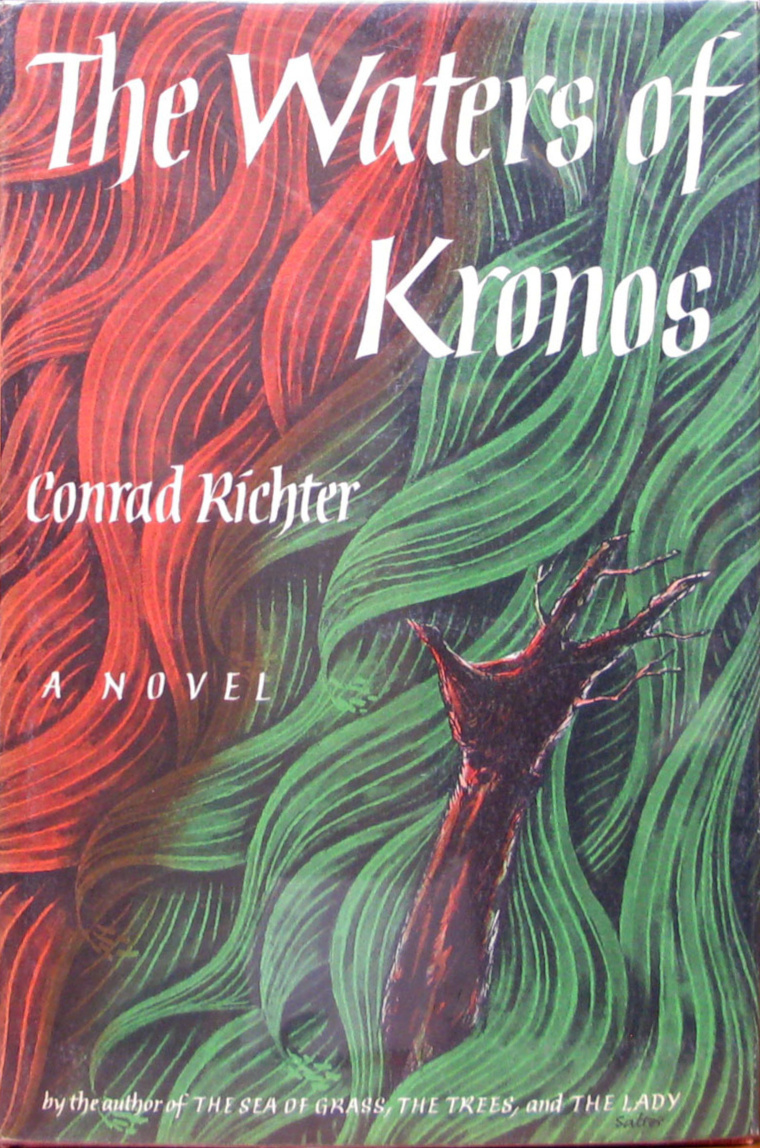Hardcover, 175 pages
English language
Published 1960 by Alfred A. Knopf.

Hardcover, 175 pages
English language
Published 1960 by Alfred A. Knopf.
In this haunting, often beautiful novel, Conrad Richter writes of the journey of John Donner, who goes back to the town where he was born, hoping to find the meaning of a deep malaise. If he can only return to the past, he feels he might be free. But the quest seems futile. The town he seeks lies at the bottom of a great modern dam made by the River Kronos.
How he is drawn back through the waters of Kronos, Time, into the past forms the narrative of John Donner's classical journey. He finds himself in his own clear, light-filled world of youth at a moment of double crisis in the lives of his richly varied family, the Donners, Morgans, and Scarletts. But they are still young. John Donner is an old man. When he tries to re-enter the old intimate family relationships, he is rejected as a stranger, …
In this haunting, often beautiful novel, Conrad Richter writes of the journey of John Donner, who goes back to the town where he was born, hoping to find the meaning of a deep malaise. If he can only return to the past, he feels he might be free. But the quest seems futile. The town he seeks lies at the bottom of a great modern dam made by the River Kronos.
How he is drawn back through the waters of Kronos, Time, into the past forms the narrative of John Donner's classical journey. He finds himself in his own clear, light-filled world of youth at a moment of double crisis in the lives of his richly varied family, the Donners, Morgans, and Scarletts. But they are still young. John Donner is an old man. When he tries to re-enter the old intimate family relationships, he is rejected as a stranger, even by the boy-he-was as they stand face to face. Only his mother, from whom he holds himself until the last, cannot fail him, he thinks. Surely she will know him and receive him into the old heretofore never-failing love.
This is a glimpse of the story at the surface. The novel has other levels, intimations of the mythical search for the father, of man's attempt to return to the source, perhaps to the safe watery world from which he came, and of the fluid yet inexorable qualities of Time itself in which our past and present mingle implacably in one stream. What John Donner finally discovers of his own identity and that of the specter which haunts him is for the reader to learn.
There are those who say that John Donner's family and background in the novel have been taken from the rich Pennsylvania ancestral soil from which the author sprang, and that The Waters of Kronos, is the first volume of a new and more personal trilogy, as The Trees was the first volume of Richter's older, Pulitzer Prize-winning trilogy that included The Fields and The Town. For this we will have to wait and see.